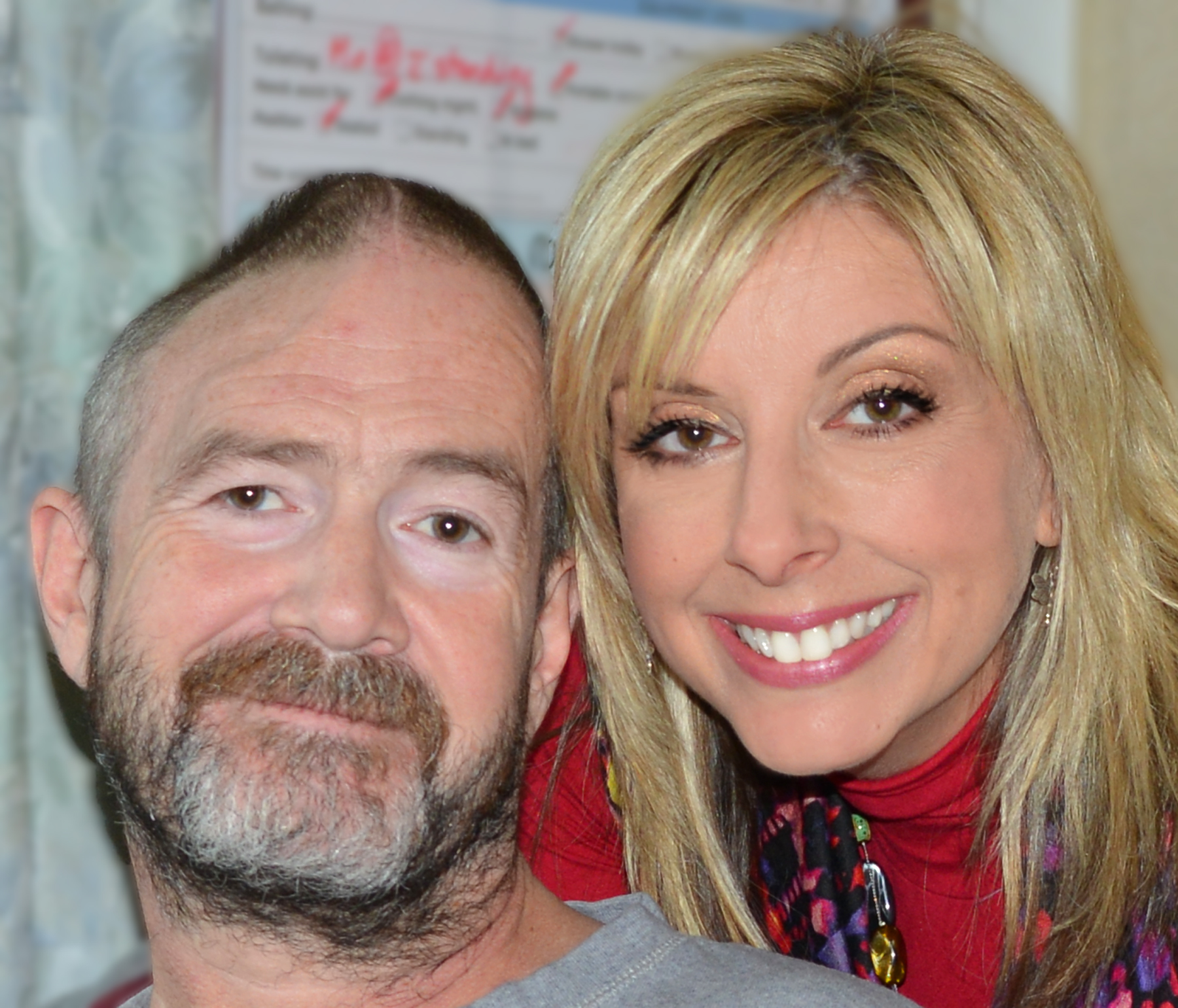Every May, we recognize National Stroke Month. It’s a time for us to raise awareness about the impact of stroke not just on the individual, but on the family. This month, two people are going to share their stroke story from two very different perspectives: survivor and partner. Each week this month, we’ll hear from Steve, a stroke survivor, and his partner Tracy. They’ll recount their experiences at different stages of the recovery process, and provide a perspective that only someone who has been there before can.
Today’s post is from Tracy and covers the first few days after Steve’s stroke.
***
Text to Steve, 9:00 a.m.: Good morning, Steve!
Text to Steve, 10:00 a.m.: I am headed out to the abandoned property to take photographs. I hope you join me there. Don’t forget we have Aqua therapy at 1PM today.
Voicemail to Steve, 11:00 a.m.: Good morning, I sent you a few texts. I am out at abandoned property. I hope you join me soon.
Voicemail to Steve 12:00 PM: Steve, I am heading home now. I am going to get ready to go for Aqua therapy. If you are not at the house by 12:30 I will meet you there.
Voicemail to Steve, 2:00 p.m.: Steve, where were you? Is everything okay? Call me.
What the heck? This wasn’t like Steve. Not only did he a miss a beautiful photographic morning at the abandoned property (we run a photography and fine art business together), but then he missed an appointment. I was trying not to worry—he tells me not to worry about him—but this was too much.
After Aqua Therapy, I don’t go home, I go to Steve’s house. His car is in the driveway—he must be home.
As I pull into his drive, I notice the kitchen side door is wide open, which I find very strange. Steve never leaves this door open. As I get out of my car, I call out Steve’s name while approaching the opened kitchen door. I get no response.
“Steve, hello, Steve!”
I get louder with each call. Still no response. Upon entering, I immediately realize the place looks disheveled with papers and furniture and items displaced and sprawled about his home. I get a terrible sinking feeling in my gut that something seriously wrong has now happened to him. I carefully maneuver through each and every room looking for him or any type of evidence of where he might be. I begin to panic. I noticed his cane laying on the floor between the bathroom and hall. He needed this cane to walk. He would not have left without it.
I call his daughter Karissa, and then I call the police. The State Police take too long to get there, but when they finally do, they look around. They find his cell phone and wallet. He never would go willing without his phone or wallet. I asked the trooper to please call the local hospitals and see if he has been admitted. Within minutes, we found out Steve was at Riddle Hospital in the emergency department, but we don’t know why. I immediately called Karissa and we both rushed over.
I entered Steve’s room, and he murmured, “Tracy.” The nurse tells me they think he had a stroke, and they are waiting for test results. Riddle’s neurologist comes into the room and asks some general questions and examines Steve. Then he speaks to Karissa and me with great concern tilting his head to the left and then to the right, switching from looking at Steve and then back to Karissa and me as he decides what can be best done. The doctor says Steve is a very young man who has suffered a huge stroke. We all decide he needs to be transferred to a hospital that specializes in this type of illness. Around midnight, he is transferred to Thomas Jefferson.
We’re told the next few days are crucial and he will be closely monitored. And for a while, he seemed to be getting better. He is talking, alert, and is aware of what has happened to him. Therapists are working with him and he is starting to use his stroke-affected left side. His daughter Karissa and his ex-wife Beverly are instrumental in his care. Bev is, by profession, a neuroradiologist and has stepped up to offer her expertise, which we gladly accepted. Support is rushing in with well wishes, prayers, voices of concern, and helpful advice.
But then things take a turn.
His headaches worsen, and we learn his brain has swelled. His doctor calls and says they need to perform a decompressive craniectomy right away. I feel a devastating blow to my deepest self and I start to panic. Bev says to me, “Tracy, this is out of your hands now. You must give your trust to the people who can help him now.” Less than two hours later, half of Steve’s skull had been removed to save his life. How things have changed in just a few days.
The next day, Beverly and I go to Steve’s bedside. He looks like someone took a bat to his head. His head is bandaged and swollen. His right eye is completely swollen shut. He has a breathing tube in and is trying to speak to us. We tell him not to try to talk, just to rest. It is going to get better. That morning Beverly and I take turns holding his hand and trying to comfort him.
Steve spent the next 7 days recovering from the surgery. While he recovers, we begin the process of finding him an acute rehab facility. We ultimately decided on Magee, and 10 days after Steve suffered his stroke he was transported to Magee via ambulance. That’s where the next part of our journey begins.







